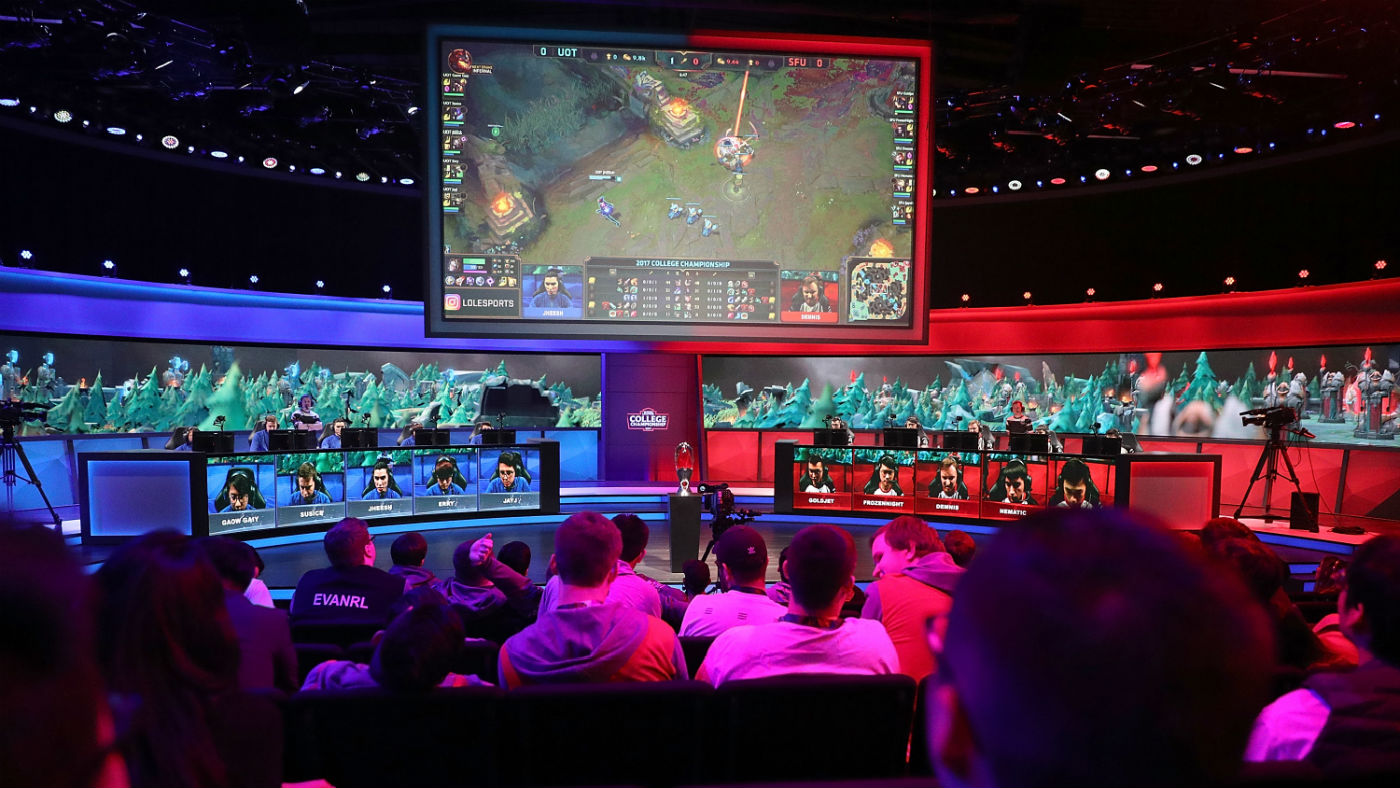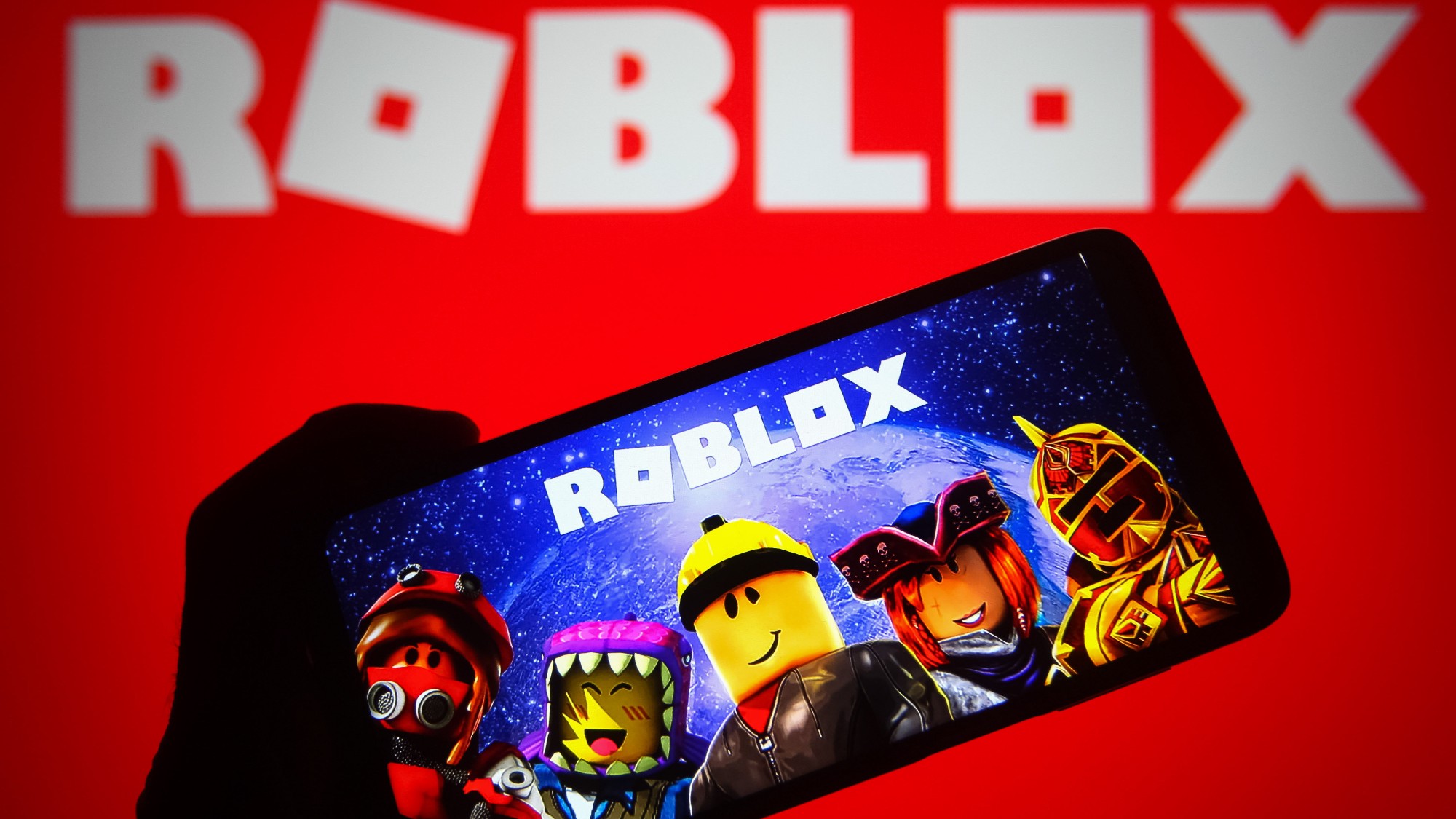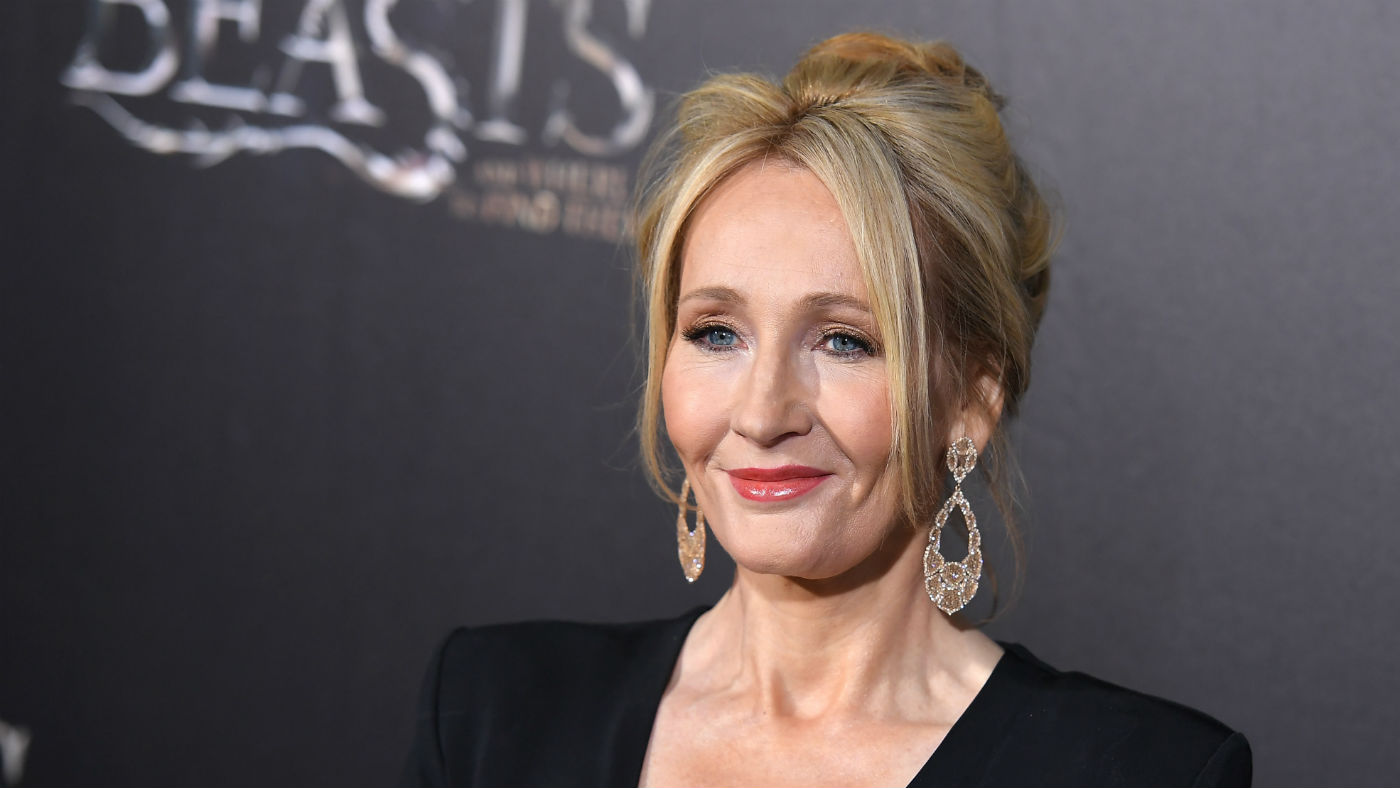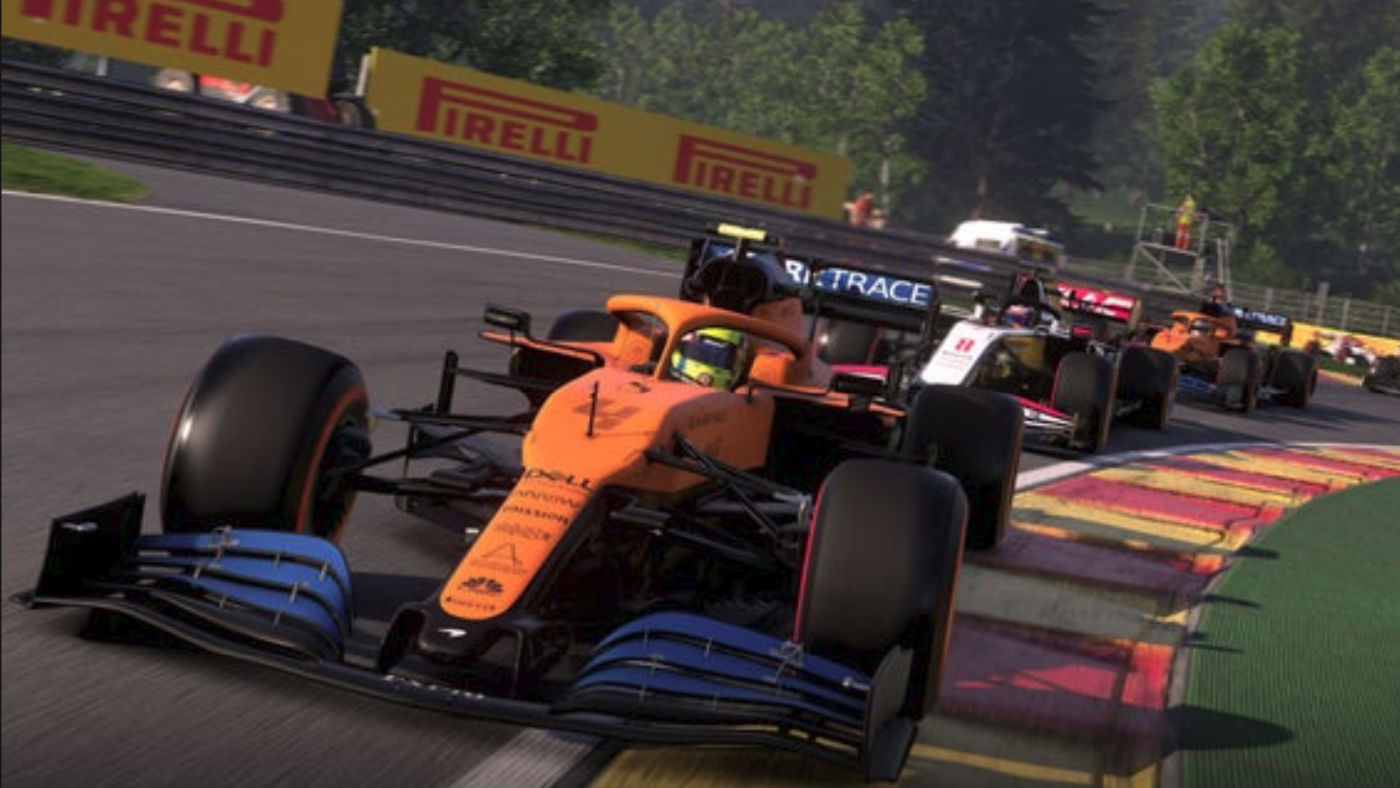Esports: why we should believe the hype
In Depth: the esports industry is predicted to grow to £1.44bn by 2022

A free daily email with the biggest news stories of the day – and the best features from TheWeek.com
You are now subscribed
Your newsletter sign-up was successful
The world of gaming has come a very long way since the days Mario first appeared in arcades back in the early 1980s.
The evolution of consoles, technology and software means that the number of gamers are now in the hundreds of millions worldwide. From sporting titles such as Fifa and Madden NFL to multiplayer online games like World of Warcraft and League of Legends, it’s not just the teens who are avid gamers. Gaming has caught on in almost every sector of society.
In fact, gaming has exploded to such an extent that the most skillful players are now competing in leagues, playing for big cash prizes and being watched by thousands of fans – both online and in arenas. Gaming has evolved into esports and the interest and revenues are growing massively each and every year.
The Week
Escape your echo chamber. Get the facts behind the news, plus analysis from multiple perspectives.

Sign up for The Week's Free Newsletters
From our morning news briefing to a weekly Good News Newsletter, get the best of The Week delivered directly to your inbox.
From our morning news briefing to a weekly Good News Newsletter, get the best of The Week delivered directly to your inbox.
According to the 2017 Global Esports Market Report published by Newzoo, the esport economy is expected to reach £527.9million in 2017, a year-on-year growth of 41.3%. Revenues include investment from game publishers (£87.9m), sponsorship (£201.7m), advertising (£117.5m) and media rights (£72m).
Newzoo says that by 2020 brand investment will double, pushing the esport market value to £1.1bn.
Peter Warman, CEO at Newzoo, says: “Esports is not only growing exponentially as a new independent business and industry, it is also accelerating the convergence of various established industries.
“For brands, media, and entertainment companies, e-sports provides a chance to capitalise on the favourite pastime of digital natives and Millennials: playing games and watching game content.
A free daily email with the biggest news stories of the day – and the best features from TheWeek.com
“With the arrival of live streams and events, gaming has entered the realm of broadcasters and media that can now apply their advertising business model to a market previously out of reach for them.”
The market research firm Ovum explores the growth even further with its report titled ‘Esports Revenue Forecast: 2017-22’. According to esportinsider.com, Ovum predicts that the global e-sport market will be valued at £1.44bn by 2022.
And according to Nielsen’s Esports Playbook, more than 600 e-sports sponsorship deals have been agreed since the start of 2016 in teams, leagues and tournaments.
Are esports really sport?
It’s the big question asked by the non-gaming community (and the cynics out there). For the answer you only have to look at the investment being made by traditional sports leagues and clubs.
In July of last year, Premier League giants Manchester City made a new signing, an 18-year-old called Kieran “Kez” Brown. He wasn’t going to join Sergio Aguero and Kevin De Bruyne on the grass training field though, he was signed as the club’s first esports player. The BBC reported that Brown would represent City at events and tournaments playing Fifa.
In the US, the NBA is also investing in esports and plans to launch the first NBA 2K League next year. The world’s best 85 NBA 2K players will be chosen to represent the 17 NBA teams that have signed up for the inaugural year. There will even be an NBA 2K Draft.
Formula 1 announced its entry in esports in August with the launch of the Formula 1 Esports Series. And this week baseball giants the New York Yankees joined the esports industry by investing in Vision Esports, a company that has stakes in Echo Fox, the professional esports organisation.
Twitch: bigger than Netflix and HBO
Perhaps the most interesting sector within esports is how fans are watching live streams, highlights and tournaments.
Broadcasting of esports is so popular that the numbers are in the millions. Gamers don’t just want to play, they also want to watch the world’s best players battle it out on the e-pitch or in the digital realm.
Most fans watch live streaming of esports via Twitch, a video platform owned by Amazon. The service has become so popular that in a report published this week by SuperData Research, and reported by Dot Esports, it was revealed that Twitch’s audience is bigger than that of Netflix and HBO.
In fact more people are watching online gaming videos than HBO, Netflix, ESPN, and Hulu combined. This year, gaming content had 666 million viewers via platforms such as Twitch and YouTube.
Last year, Twitch had 185 million viewers compared to HBO’s 130 million and Netflix’s 93 million. SuperData predicts that this year Twitch’s viewership will grow to 212 million.
What are the next steps in esports?
With millions playing, millions watching and major brands investing, where does the esport industry go from here?
Esport governance and regulation are major talking points for industry officials and stakeholders. Subjects such as player welfare, betting, match-fixing and performance-enhancing drugs are just some of the topics on the agenda.
Jan Pommer, director of team relations at ESL – the world’s largest esports company – says that governance is something that the industry is working hard on. He believes the e-sport industry can also learn from its cousins in traditional sport.
Speaking at the recent Leaders in Sport summit in London, he said: “It’s still a new industry, it’s a rock and roll industry. It’s developing governance as a topic. We tried to copy rules from the classic world of sport and created an e-sports association. We are working on these on a day-to-day basis.
“It’s complex and diverse, but there’s a huge amount of common ground between traditional and esports. Betting is one of the best things to involve people but there is a danger. Fraud has to be addressed.”
With many stakeholders in e-sports – including players, teams, leagues and publishers – Pommer says that for any governance or laws to be agreed upon, everyone around the e-sport table must be involved.
“It’s a joint responsibility,” he says. “We all have to work on this jointly. It’s tough to say how this is going to end up. Nobody knows this.
“The great things about e-sports is that everything is developing so fast – and that’s how we should work. We have come pretty far.”
-
 The Week Unwrapped: Do the Freemasons have too much sway in the police force?
The Week Unwrapped: Do the Freemasons have too much sway in the police force?Podcast Plus, what does the growing popularity of prediction markets mean for the future? And why are UK film and TV workers struggling?
-
 Properties of the week: pretty thatched cottages
Properties of the week: pretty thatched cottagesThe Week Recommends Featuring homes in West Sussex, Dorset and Suffolk
-
 The week’s best photos
The week’s best photosIn Pictures An explosive meal, a carnival of joy, and more
-
 The most notable video games of 2025
The most notable video games of 2025The Week Recommends Download some of the year’s most highly acclaimed games
-
 Mario Kart World: Nintendo Switch 2's flagship game is 'unfailingly fun'
Mario Kart World: Nintendo Switch 2's flagship game is 'unfailingly fun'The Week Recommends The 'thrilling' racer includes a range of new features including open-world exploration
-
 Roblox: new safety features leave kids 'at risk'
Roblox: new safety features leave kids 'at risk'The Explainer Gaming platform loved by children has been plagued by explicit content and grooming
-
 Cozy video games to help you unwind from the chaos
Cozy video games to help you unwind from the chaosThe Week Recommends Some games can go a long way in alleviating stress or anxiety
-
 What was Gamergate – and why are we still talking about it?
What was Gamergate – and why are we still talking about it?The Explainer Ten years on, the impact of the misogyny-fuelled campaign still lingers
-
 Fallout: one of the 'most faithful – and best – video game adaptations'
Fallout: one of the 'most faithful – and best – video game adaptations'The Week Recommends This 'genre-bending' new Amazon series is set in a post-apocalyptic wilderness where survivors shelter below ground
-
 Hogwarts Legacy: to buy or to boycott?
Hogwarts Legacy: to buy or to boycott?Talking Point A new Harry Potter video game is facing a backlash from trans activists over J.K. Rowling’s views
-
 EA races towards takeover of gaming rival Codemasters
EA races towards takeover of gaming rival CodemastersSpeed Read US giant ‘gatecrashes’ Take-Two’s deal with higher offer of $1.2bn